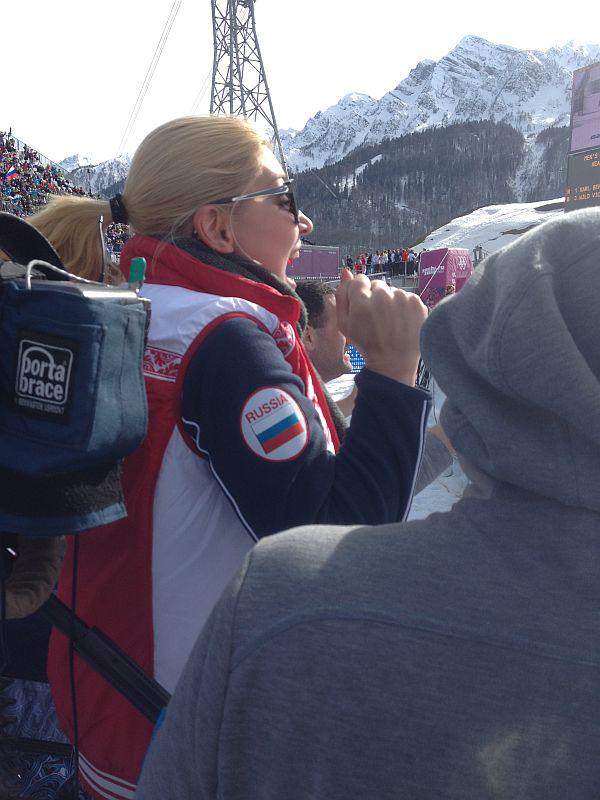Sports journalism has never been highly regarded in specialist literature. “Sports editorial is a small empire; sports journalists live in their own world” (Pirc, 2005) and “Other journalists underestimate the work of sports journalists, saying that sports editorial is like a toys department in a media organization” (Rowe, 2005) are only two completely randomly selected quotations.
Recently, I gave a lecture at the Faculty of Social Sciences on sports journalisms and problems arising in this area. One of the key problems that students highlighted was objectivity, or lack of objectivity. Many researchers in the field of sports media like to emphasize that in reality journalists are sports fans who are hiding behind their pens and microphones, living out their cheerleading by being actively involved in the media. Is that true? Again, I shall give a few random examples.
Sochi 2014 Olympic Games, snowboard parallel slalom final: The American-born Russian snowboarder Vic Wild overtook the Slovene snowboarder Žan Košir by a brief second in the grand final, winning a second gold medal at the Olympics. The Slovene and Russian journalists stood together in the mixed zone. It wasn’t difficult to spot a female Russian journalist who was jumping every time Wild performed well, and was looking forward to each victory. I took a look at the stands where sports fans were rejoicing too, but not at all as impetuously as that female journalist next to me.
2010 FIBA World Championship: Almost after every competition at which I was present, the situation was similar – the journalists in the mixed zone patted basketball players on the shoulders enthusiastically when they won, and comforting when they lost. The country names are not important, this is an internationally widespread pattern.
I’m a great supporter of objectivity, but at the same time I realize that objectivity is impossible to reach. However, it can be an ideal which journalists should strive for. They should not only strive for it, but also try to get closer to it. Some theorists go so far that their model demands absolute objectivity as regards the amount of information provided. This means that as much is said, for example, about two Slovene alpine skiers, should also be said on two Bulgarian ones. I find this ‘mathematical’ objectivity too exaggerated. Nonetheless, a journalist works for a media organization of a particular country, where a particular language is spoken, and most readers are, of course, more interested in the data and stories about the athletes of their country or region. For this reason, it’s nothing wrong if those athletes are devoted more attention in the relevant media; however, it’s right that journalists assess the athletes’ performance objectively.
Although I understand objectivity at the international level, I still have problems with understanding it at the level of clubs. When clubs are competing in a national championship, I can hardly understand and tolerate it that a sports commentator subjectively talks to the advantage of, for example, Barcelona/Real, Manchester United/Liverpool, Bayern/Borussia, etc.
Similarly, this happened a few days ago in the USA, where a final student basketball tournament took place. The tournament was broadcasted by two major television companies, which decided for the first time to broadcast it ‘subjectively’, meaning that commentators would mark a certain university as ‘ours’, and focus more attention to it; moreover, they made subjective comments also on judges’ decisions. Although the televisions’ representatives have announced their decision a few weeks prior to the event, this provoked a storm of criticism, and social networking services were full of astringent comments. Apparently, sports followers don’t like (too) obvious inclination for one side.
Dear readers, what do you prefer: unbiased, objective commentaries, or sports commentaries which show obvious inclination for one side?


































































